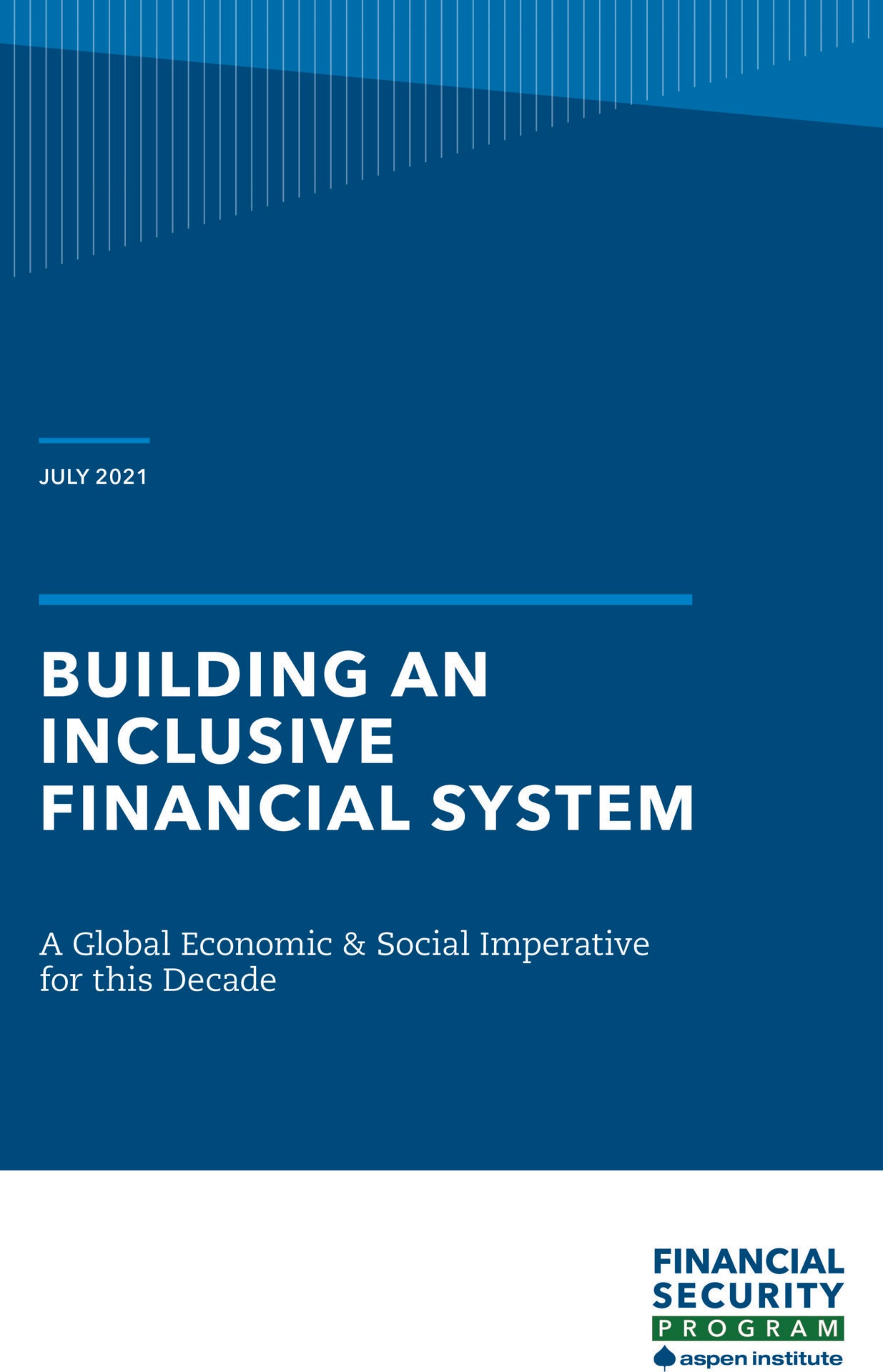Since 2011, more than 1.2 billion adults globally have obtained a bank or transaction account — up to 69% from 51% in the past decade. Yet, gains in “access” miss the more important goal: whether financial access translates into better financial health for the people who need it. The stress brought by the pandemic on our financial systems, combined with a heightened awareness of our interconnectedness, has convinced many leaders that now is the time to re-design financial systems to create equitable, long-term financial security for people and small businesses.
The Aspen Institute Financial Security Program’s new paper, “Building an Inclusive Financial System” highlights four key principles required to achieve these aims:
- Prioritizing historically excluded and underserved populations;
- Measuring success by outcomes;
- Establishing and enforcing strong regulatory regimes; and
- Promoting growth and integrity.
Creating inclusive financial systems would actually help translate macroeconomic gains into measurable financial security for individuals, improve stability, create opportunities for mobility, and level the playing field for historically underserved populations. Read it today.
This paper was also developed as part of the Global Inclusive Growth Partnership, a collaboration between the Aspen Institute and the Mastercard Center for Inclusive Growth.


